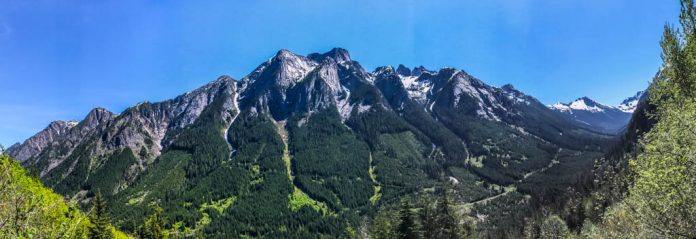It’s relieving to know what you enjoy doing. I thought about this while on a solo nature walk near Chilliwack last weekend. I was both on the trail, and in recollection of why I chose this path.
When I first enrolled in university, I was dead set on a specific field of study; then I was dead set on another specific field of study. Since then I’ve spent more time exploring options than building towards a particular goal. Now, if I had my druthers, I’d be studying some amalgamation of journalism, linguistics, anthropology, environmental studies, and geology. I don’t know of any programs that offer that. And does that really matter?
In a Macleans article, SFU registrar Kate Ross said: “My philosophy is that an undergraduate degree is an undergraduate degree. In some respects, employers don’t really care what area it’s from but it sends a message about capability.”
Ross goes on to say that she tells students to just pick something they think they might enjoy. Then, let it unfold. Learning what you don’t like is often as important as learning what you do like.
Besides, the average person changes jobs 10–15 times before they retire. And career change statistics show that even beyond job changes, the average person will change their career 5–7 times. So really, this one decision, choosing an undergraduate program, isn’t as pivotal as is often said. Part of that probably comes from people not know what they want — with so many options, how can they?
Statistics Canada’s “Youth in Transition Survey,” conducted between 2000 and 2010, followed the same respondents for 10 years, starting at age 15. The data showed that career uncertainty isn’t uncommon. More than 13 per cent were still undecided about a career at age 25, and 38.3 per cent who had already decided, chose to pursue a different career. While the study didn’t continue past age 25, other data would suggest that they’d go on to change their career several more times before 50.
A few years ago I was on a hike in Cathedral Provincial Park. In old reports, the trailhead is marked by an old whiskey bottle, suspended by rope from a tree, about head-height. There was no bottle. We pushed forward in its general direction, expecting to find a marker. By the next valley over, we broke out the maps.
The thing about walking is, when on the trail, one doesn’t question why they’re there, or if they’re on the right path. It’s only after losing sight of it that we start to question. And rightly so, the path is easiest to see when on it; nobody wonders where it is while they walk it. But I don’t believe there’s anything wrong with taking some time to wander when the path isn’t clear. In fact, that might be the most appropriate thing to do under the circumstances.
On the second mountainside over, we lunched in a mountain meadow which was full of delicious wild strawberries and featured a panoramic view of most of the range. It wasn’t the plan, but we would never have found the berries without first deviating from the trail.
University education was once about bettering oneself as a citizen — growing and learning that you don’t know everything. Somewhere along the line it became job training, and I think that stresses people out. Nowadays, a student is forced to plan five or more years in advance, rather than build into who they are, where they are.
“To some extent, it’s not about what you took but what you gained from it,” said Ross. To a greater extent, it’s about enjoying the journey, not necessarily rushing to the top.
It has bothered me that I still don’t know exactly which program I want to follow through with. Then I remember that I do what I love, and all of life is an experiment.


